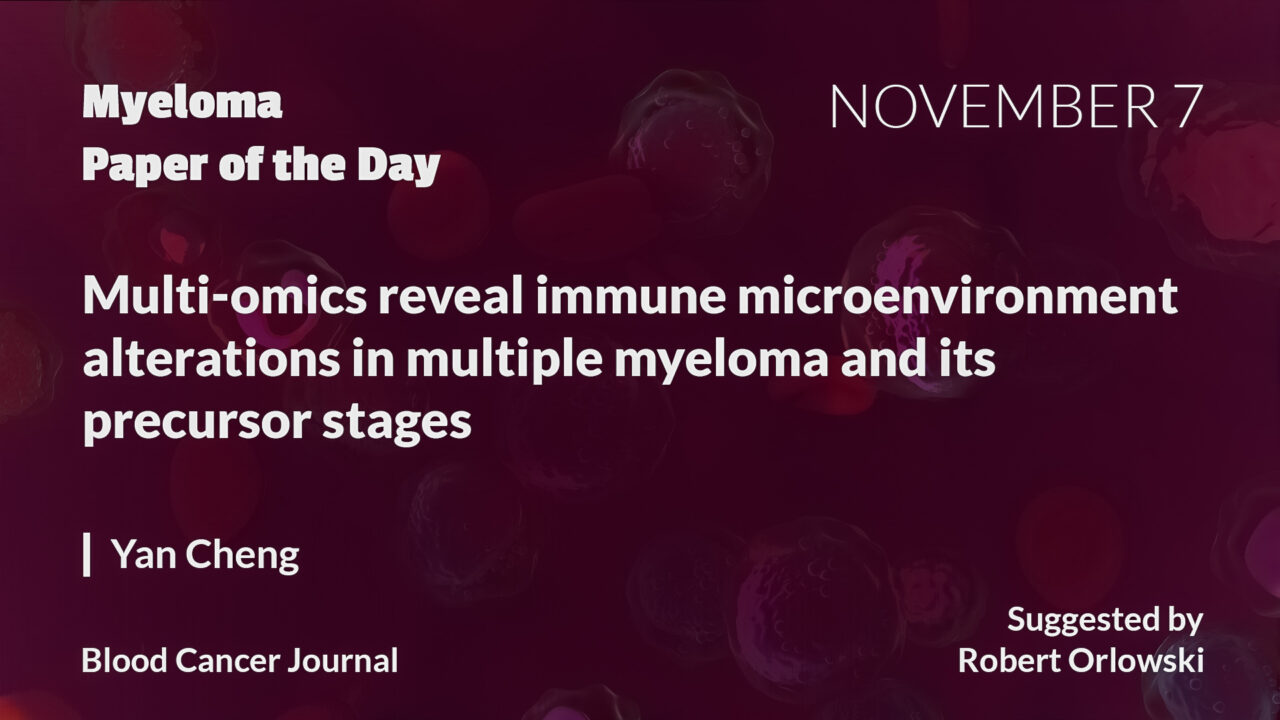Robert Orlowski shared a post on X:
“Myeloma Paper of the Day: Multi-omics in of myeloma precursors finds decreased granulocytes predicts outcomes, HLA-DR reduced in monocytes and pDCs, mDCs with decreased stress and immune-response, NKs with GZMB+ cytotoxic phenotype with increased TIM3/TIGIT.“
Multi-omics reveal immune microenvironment alterations in multiple myeloma and its precursor stages
Authors: Yan Cheng, Fumou Sun, Daisy V. Alapat, Visanu Wanchai, David Mery, Eric R. Siegel, Hongwei Xu, Sarah Johnson, Wancheng Guo, Clyde Bailey, Cody Ashby, Michael Anton Bauer, Samer Al Hadidi, Carolina Schinke, Sharmilan Thanendrarajan, Maurizio Zangari, Frits van Rhee, Guido Tricot, John D. Shaughnessy Jr and Fenghuang Zhan.

More posts featuring Robert Orlowski.
Robert Orlowski, M.D., Ph.D., holds multiple positions at The University of Texas MD Anderson Cancer Center, including Chairman, Ad Interim Director of Myeloma, and Professor of Medicine in the Departments of Lymphoma/Myeloma and Experimental Therapeutics within the Division of Cancer Medicine. Additionally, he chairs the SWOG Barlogie/Salmon Myeloma Committee, which is part of the National Clinical Trials Network, dedicated to advancing new therapies and understanding the biology of myeloma.
Dr. Orlowski’s expertise lies in both clinical practice and scientific research, with a particular focus on translating laboratory discoveries into effective treatments for patients. He investigates drug resistance mechanisms in myeloma and seeks to identify predictive biomarkers for treatment response. Notably, his past contributions include leadership roles in developing proteasome inhibitors like bortezomib and carfilzomib, as well as monoclonal antibodies such as daratumumab and elotuzumab.


